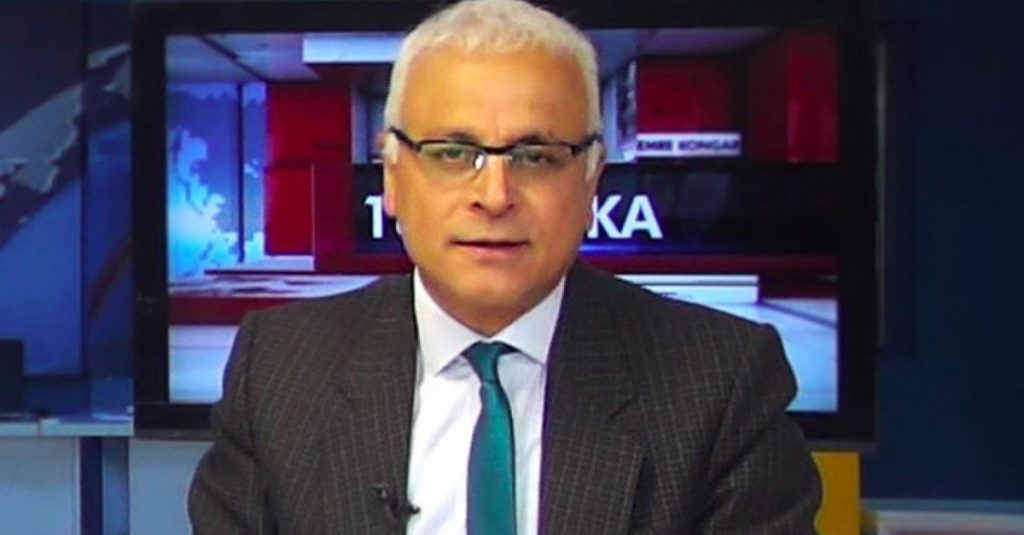Merdan Yanardağ, the editor-in-chief of Turkish broadcaster TELE1, who was arrested last month for remarks on air about a terrorist leader, will appear before a court on Oct. 4 now that the indictment against him has been accepted by a panel of judges, the Artı Gerçek news website reported.
The İstanbul 30th High Criminal Court has accepted an indictment against the journalist that seeks a prison sentence ranging from one year, six months to 10 years, six months.
Yanardağ was arrested on June 27 over televised remarks regarding Abdullah Öcalan, the imprisoned leader of the outlawed Kurdistan Workers’ Party (PKK).
The journalist has been charged with “praising crime and a criminal” as well as “disseminating propaganda for a terrorist organization.”
Yanardağ is facing the prison sentence based on his comments about Öcalan during a June 20 broadcast on TELE1. He had said Öcalan should have been released if the Law on the Execution of Punishments and Security Measures was abided by, and he criticized the legal basis for the “isolation” imposed on Öcalan.
The “isolation” of Öcalan, who has been jailed in a high-security prison on İmralı Island in the Sea of Marmara since 1999, refers to his inability to speak with his lawyers for years.
The journalist said the “isolation” imposed on Öcalan has no legal basis while lamenting the fact that he is not even allowed to meet with his family members and lawyers.
He also described Öcalan as “a smart person who reads a lot of books and can analyze political developments correctly.”
Shortly before his arrest Yanardağ said his words had been taken out of context and were not meant to praise Öcalan.
Yanardağ is currently held in Silivri Prison, near İstanbul. A request for release pending trial was denied by the court on July 5 on the grounds that Yanardağ was considered a flight risk.
Yanardağ’s arrest has drawn international attention to ongoing concerns about freedom of the press and freedom of expression in Turkey.
It is common for journalists in Turkey, which has a poor record on freedom of the press, to face threats, physical attacks and legal harassment due to their work.
Rights groups routinely accuse the Turkish government of trying to keep the press under control by imprisoning journalists, eliminating media outlets, overseeing the purchase of media brands by pro-government conglomerates and using regulatory authorities to exert financial pressure, especially since President Recep Tayyip Erdoğan survived a failed coup in July 2016.
Turkey is ranked 165th in the Reporters Without Borders (RSF) 2023 World Press Freedom Index, among 180 countries, not far from North Korea, which occupies the bottom of the list.

